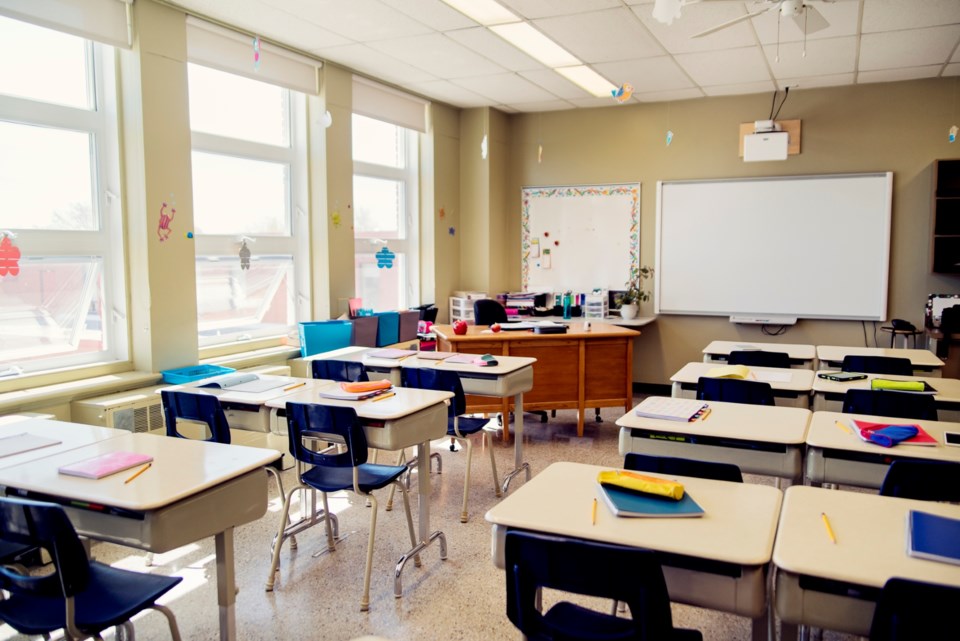New Westminster parent Tony Gilligan saw his daughter struggle from the time she was in kindergarten.
“We spent all week with her trying to practice her 10 words. And we'd get to the end of the week, and she'd come home with a fail,” he said in an interview. “It was heartbreaking for us.”
The parents wanted to do whatever they could to help their daughter succeed, but they found out there was a three-year wait for a psychological-educational assessment through the school system.
They paid for their own and ultimately decided to send their daughter to Kenneth Gordon, an independent school that focuses on diverse learners. Her parents pay the tuition, which is more than $30,000 a year, Gilligan said. They also cover her bus ride to and from school each day, but it’s been worth it.
She is now reading at grade level and is only slightly behind in math, he said.
“Families with financial means can access timely and effective supports. Families without those means are left waiting or are forced to watch their children fall further behind,” Gilligan wrote in a letter to Lisa Beare, B.C.’s minister of education and childcare. “This is not an inclusive system; it is one that perpetuates inequality.”
Teachers are also concerned. The most recent B.C. Teachers’ Federation Membership survey, of more than 4,000 public school teachers, showed that fewer than one-quarter of teachers feel that students’ academic, social and emotional needs are being completely or very much met. That satisfaction level falls to 13 per cent when talking about students with disabilities or diverse needs, the BCTF says.
“A fundamental principle of our system is inclusion. Every child has an equal right to public education,” said BCTF President Clint Johnston. “But the funding for inclusive education services is woefully inadequate in B.C. For years, our school districts have had to spend far more on inclusive education than they receive from Victoria.”
The BCTF says there is a $340-million funding gap for inclusive education, money that districts end up taking from operational funding.
The delay in educational assessments also means students with learning needs are not identified in a timely manner, and for the years they are waiting for assessment, extra supports are not earmarked for their education.
In the lead up to the 2024 election, the B.C. NDP promised they would have an education assistant in every primary classroom and a mental health counsellor in every school. The survey findings show that has not happened.
Beare wasn’t available for an interview, but the Ministry of Education and Child Care said in an emailed response that funding for education has increased by more than 50 per cent since 2017 and that all students should feel supported and included in B.C. schools.
Specific to learning differences like dyslexia, the ministry says it has provided $30 million to scale up early literacy screening, professional development for teachers, outreach programs for students and new resources for parents.
“There is still more work to do, and the ministry will continue working collaboratively with advocates, families, and education partners to support students' success now and into the future,” the ministry said in its emailed response.
One in seven teachers said it’s unlikely they will be teaching in two years’ time, and a similar number said their mental health was very poor or poor. If these teachers do leave, it will devastate the system, which is already short of trained teachers.
More flexible teacher training would be one way to get more qualified teachers into the system quickly, as I wrote last month.
The survey used a random sample methodology online, in which 4,070 teachers responded. The margin of error is plus or minus 1.5 per cent, 19 times out of 20.
Fifteen per cent of teachers reported that they have personally experienced violence against them in schools, the survey says.
“Schools feel unsafe, violence and aggressive language are being normalized, and even strong experienced teachers are struggling. Student learning is becoming less of a focus,” one teacher said in the survey.
Johnston said that acting out is the result of underfunding.
“When children don’t have the services they need to thrive at school, their behaviours are urgent pleas for help,” he said.
Gilligan, the dad from New West, says it’s also a human rights issue. He would like to see early screening for all students, public access to evidence-based structured literacy instruction, mandatory training for educators in these practices and reduced wait times for assessments.
“The consequences of failing to address these gaps are profound,” he wrote in his letter to Beare.
“Children with unaddressed learning disabilities face increased risks of anxiety, depression, academic disengagement, and even suicidal ideation. …The personal toll is immense, and the societal costs, from healthcare to social assistance, are entirely preventable.”
The right of all children to an education was confirmed by the Supreme Court of Canada in the 2012 Moore vs. British Columbia case.
“Adequate special education… is not a dispensable luxury. For those with severe learning disabilities, it is the ramp that provides access to the statutory commitment to education made to all children in British Columbia,” the decision says.
That applies, whatever the diverse learning needs, whatever the shortage of teachers. We must ensure all children get the education they need to succeed.
Tracy Sherlock is a freelance journalist who writes about education and social issues. Read her blog or email her [email protected].
📣 Got an opinion on this story or any others in Richmond? Send us a letter or email your thoughts or story tips to [email protected].
📲 To stay updated on Richmond news, sign up for our daily headline newsletter.
💬 Words missing in article? Your adblocker might be preventing hyperlinked text from appearing.



